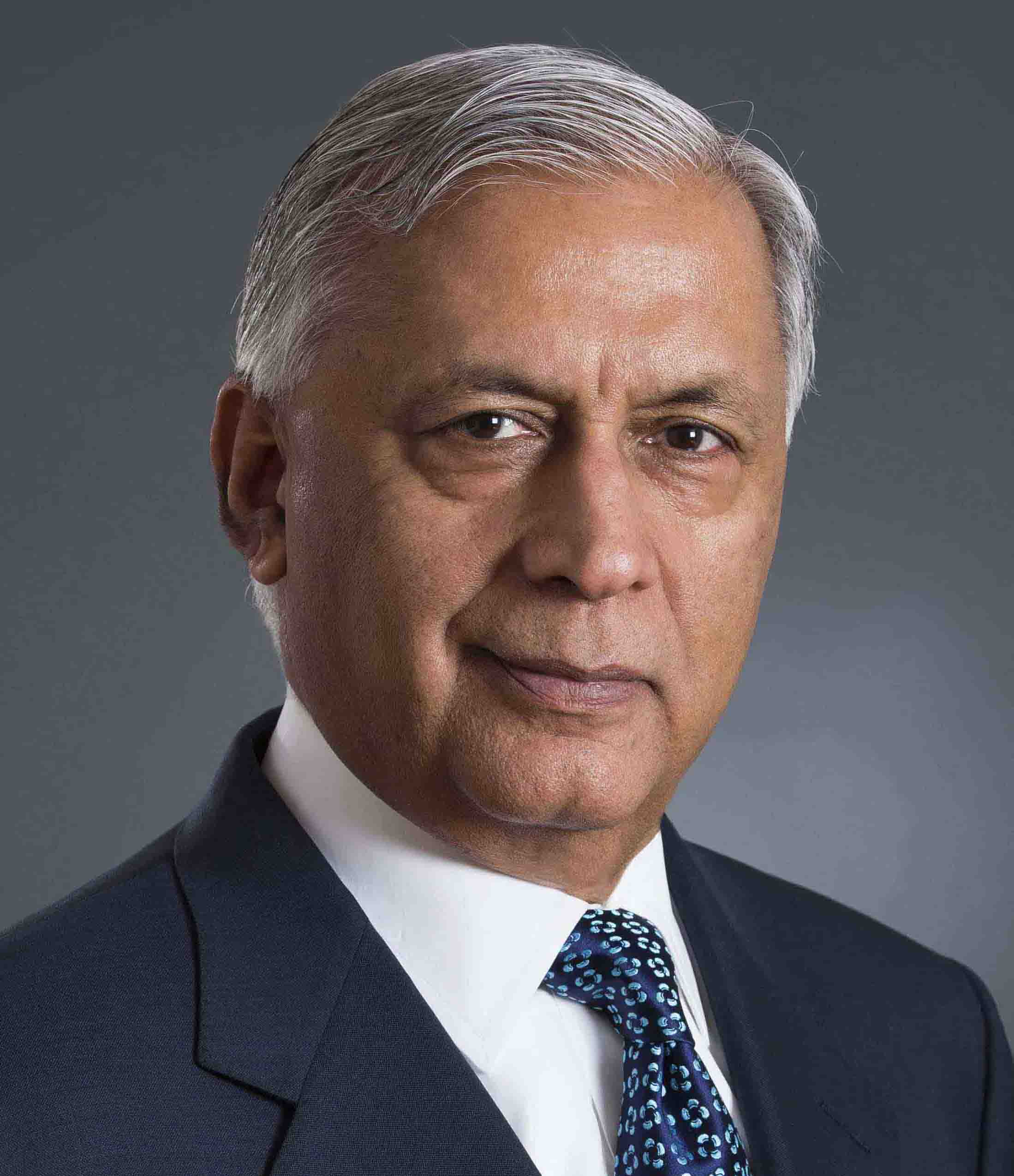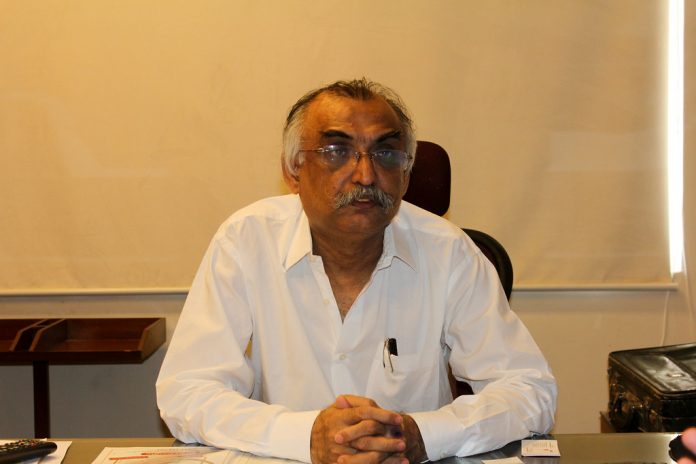Why Technocracy is the Only Way Out?
Amjed Jaaved
With change of guards at the SBP, and with removal of a bureaucrat from the post of FBR Chairman, and appointment of a technocrat to take his place, a surreptitious technocratic coup d’état seems to be underway in Pakistan. This development also suggests that the current setup of the country is in stagnant waters, and it is not an easy task to make it delivery-oriented in a short time. So, the government has decided to implement change by installing experts and professionals from various fields as heads of important public sector institutions and government bodies.
Democracy is synonymous with ‘participation’ of the common man in governing process. But, in reality, it has never been so. Prof. Noam Chomsky rightly points out that even the American masses are like a “bewildered herd” that has stopped thinking (Media Control: The Spectacular Achievements of Propaganda). He then asserts that there is a “small percentage of the people,” a “specialized class” who … analyse, execute, make decisions and run things in the political, economic and ideological systems” … and their biggest objective is to tame the ‘bewildered herd’.
Inherent flaws in democracy lead to the rise of technocratic elites. Technocrats did successfully help Ayub Khan in rapid industrialization of the country. But, they uncannily accentuated concentration of wealth and economic power. Disparities in incomes and assets of poor and rich households led to the rise of 22 industrial barons. Ayub’s economic wizard, Dr Mahbubul Haq, later published ‘Seven Sins of Economic Planners in Pakistan’ to identify his planning mistakes. Thank God, we now have no plan, at all. We are on auto pilot.
 In a sharp contrast, Gen Ziaul Haq annulled the second phase of “feudal” Bhutto’s land reforms to gain political support of big land-owners against the country’s elected and deposed populist prime minister.
In a sharp contrast, Gen Ziaul Haq annulled the second phase of “feudal” Bhutto’s land reforms to gain political support of big land-owners against the country’s elected and deposed populist prime minister.
Is technocracy inevitable?
In his 1911 book ‘Political Parties’, a noted German sociologist Robert Michels postulated the ‘Iron Law of Oligarchy’. He stated that the raison d’être of a representative democracy is eliminating the elite rule. It is an impossible goal because representative democracy is a façade legitimizing the rule of a particular elite, and that elite rule, which he refers to as oligarchy, is inevitable.
According to the ‘iron law theory’, democracy and large-scale organizations are incompatible. The rule by an elite, or oligarchy, is inevitable upshot of ‘tactical and technical necessities’ of democratic organizations. All organizations eventually come to be run by a “leadership class,” that often functions as paid administrators, executives, spokespersons or political strategists for the organization. Far from being “servants of the masses,” the “leadership class,” will inevitably dominate the organization’s power structure. They control access to information, with little accountability. They manage to centralise their power as masses (rank and file) are apathetic, and indifferent to the organization’s decision-making processes.
 No large and complex organizations can function purely as a direct democracy. Power within an organization will always get delegated to individuals within that group, elected or otherwise. Democratic attempts to hold those on leadership positions accountable are bound to fail. The oligarchy has power to reward loyalty, gag dissent and influence members (masses).
No large and complex organizations can function purely as a direct democracy. Power within an organization will always get delegated to individuals within that group, elected or otherwise. Democratic attempts to hold those on leadership positions accountable are bound to fail. The oligarchy has power to reward loyalty, gag dissent and influence members (masses).
Mafias
William A. Welsh says, “The rise of democracy has signalled the decline of elites (Leaders and Elites, p.1). Not true of Pakistan? Here talent rusts and mafias prevail. We see mafias all around, in media, in politics, in justice system, in education and healthcare sectors; in fine, everywhere.
The ‘Iron Law of Oligarchy’ smacks of ideas in “The Theory and Practice of Oligarchical Collectivism,” a fictional book in the dystopian novel Nineteen Eighty-Four (1949) by George Orwell. Throughout the recorded time, and probably since the end of the Neolithic Age, there have been three kinds of people in the world: the High, the Middle, and the Low. The examples of Lee Kuan Yew in Singapore, Mahathir Mohammed in Malaysia, Deng Xiaoping and Xi Jinping in China, Park Chung-hee in South Korea illustrate how visionary leaders backed by a strong central government can rapidly transform nations.
Why are technocrats necessary?
Since politicians lack ‘foresight’ of scientific advances in agriculture, engineering, artificial intelligence, automated industrial manufacturing, medical biotechnology, and so on, therefore, only technocrats could correct socioeconomic injustices through accelerated economic development.
Aristotelian democracy and Pakistan
In his study of political systems (oligarchy, monarchy, etc.), Aristotle concluded that ‘demokratia’ was the best system. The problem that bothered him was that the majority of free people (excluding women and slaves) would use their brute voting power to introduce pro-poor legislation like taking away property from the rich.
Aristotle suggested that we reduce income inequalities so that the have-not representatives of the poor are not tempted to prowl upon haves’ property. James Madison (fourth president of the United States of America) harboured similar concerns. He feared ‘if freemen had democracy, then the poor farmers would insist on taking property from the rich’ via land reforms (Noam Chomsky, Power Systems, p 84). The fear was addressed by creating a senate (US) or a house of lords (Britain) to forestall legislative vulgarities of the House of Representative or the House of Commons.
Aristotle would rejoice in the grave to see both Pakistan’s National Assembly and the Senate being populated by the rich. One leader, the three-time prime minister of the country, wears Louis Moinet ‘Meteoris’ wristwatch having a worth about Rs. 460 million. Another, a vocal proponent of Medina State, lives in a 300-kanal house. These prime ministers never took any legislative steps to equalize citizens in access to education, medicare, housing and jobs; in short, in all realms of life. No government looked into the origin of landed aristocracy, chiefs and chieftains in the subcontinent during the Mughal and British periods. Doubtless, our democracy is Aristotle’s dream as it is stable, rich and pro-rich.
Aristotelian remedy: Golden Mean
In his foundational work on human ethics ‘Nicomachean ethics’, Aristotle postulates: (a) justice exists only between men whose relations are regulated by law, and (b) law exists for men whose relation is defined by injustice. So, law was the bludgeon to correct injustice. Aristotle admitted that societies are flawed as the relation between individuals is based on caprice, avarice and injustice. He was optimistic that societies would balance personal desires (gain-loss, cost-benefit) by evolving a ‘Golden Mean’, a set of rules treating all individuals equally before law. The maxim was: ‘treat others as you would like to treat yourself”. If we perceive the “Golden Mean” as a weighted average, then masses in Pakistan carry the least weight vis-à-vis classes (elites, mafias, etc.).
Inference
 In Pakistan, technocracy has become synonymous with subjugation to accommodation of IMF and World-Bank’s throwaways. The society remains unruffled when a Moeen Qureshi or a Shaukat Aziz drops from heavens to become the country’s prime minister. Why not lease out the country to IMF? Or, still better, to the highest bidder. We used to have a National Talent Pool?
In Pakistan, technocracy has become synonymous with subjugation to accommodation of IMF and World-Bank’s throwaways. The society remains unruffled when a Moeen Qureshi or a Shaukat Aziz drops from heavens to become the country’s prime minister. Why not lease out the country to IMF? Or, still better, to the highest bidder. We used to have a National Talent Pool?
To correct multifaceted social injustice, all stakeholders should try to evolve Aristotelian ‘Golden Mean’. Or else, continue on auto-pilot until divine retribution strikes.
 Jahangir's World Times First Comprehensive Magazine for students/teachers of competitive exams and general readers as well.
Jahangir's World Times First Comprehensive Magazine for students/teachers of competitive exams and general readers as well.



